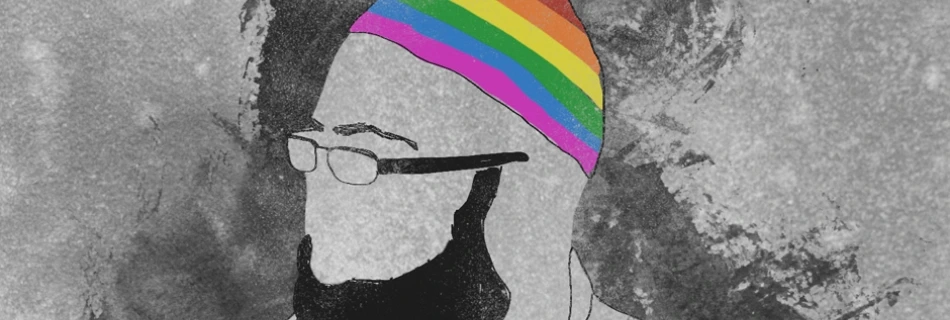
- › Introduction to the topic of being a gay Muslim
- › The challenges faced by gay Muslims in reconciling their sexuality with their faith
- › The different interpretations of homosexuality in Islam
- ›The role of culture and tradition in shaping attitudes towards homosexuality in Muslim communities
- › The experiences of gay Muslims in different parts of the world
Being a gay Muslim means that a person identifies as both Muslim and gay. This can be a challenging identity to reconcile as some interpretations of Islam consider homosexuality to be a sin. However, many Muslims who are also gay believe that their sexuality is not incompatible with their faith and strive to find a balance between the two. It's important to remember that everyone's journey and experience is unique, and it's important to respect and support individuals who identify as both gay and Muslim.
Introduction to the topic of being a gay Muslim
Being a gay Muslim is a complex and sensitive topic that encompasses the intersection of sexual orientation and religious identity. For individuals who identify as both gay and Muslim, navigating their dual identities can be challenging due to societal and religious norms that often conflict with their personal experiences. The intersectionality of being a gay Muslim brings forth unique challenges, as it involves reconciling personal desires and emotions with the teachings and beliefs of Islam.
Within the Islamic faith, homosexuality is generally considered forbidden or sinful according to traditional interpretations of religious texts. This can create feelings of guilt, shame, and isolation for individuals who identify as gay and also strive to practice their faith. Many gay Muslims often face a dilemma of having to choose between their sexual orientation and their religious identity, leading to internal struggles, psychological distress, and strained relationships with their communities.
It is important to approach the topic of being a gay Muslim with empathy, respect, and a willingness to understand the complexities and unique experiences that individuals face. By engaging in open and respectful dialogue, we can foster greater acceptance and support for those who navigate the intersection of their sexual orientation and religious beliefs, working towards a more inclusive and compassionate society.
The challenges faced by gay Muslims in reconciling their sexuality with their faith
Being a gay Muslim can be a difficult and complex experience. Many Muslims believe that homosexuality is a sin, which can cause significant internal conflict for those who identify as LGBTQ+ and also practice Islam. This internal struggle can lead to feelings of guilt, shame, and confusion about their identity and place in the world.
In addition to the internal challenges, gay Muslims may also face external challenges from their families and communities. Coming out as gay can result in rejection from family members, ostracism from their community, and even violence in some cases. This can lead to a sense of isolation and loneliness for gay Muslims, who may feel like they are caught between two worlds.
Despite these challenges, there are many gay Muslims who have found ways to reconcile their sexuality with their faith. Some have chosen to reinterpret Islamic teachings to be more inclusive of LGBTQ+ individuals, while others have found support in more progressive Muslim communities. Others have chosen to leave Islam altogether, feeling that it is not possible to reconcile their sexuality with their faith.
Ultimately, the experience of being a gay Muslim is unique to each individual. It is a complex and nuanced issue that requires empathy, understanding, and support from both the LGBTQ+ community and the Muslim community. By working together, we can create a more inclusive and accepting world for all people, regardless of their sexual orientation or religious beliefs.
The different interpretations of homosexuality in Islam
The topic of homosexuality in Islam has been a controversial one, with different interpretations and opinions among Muslims. Some believe that homosexuality is a sin and strictly forbidden in Islam, while others believe that it is a natural variation of human sexuality and should be accepted and celebrated.
One interpretation of Islam views homosexuality as a sin, citing verses from the Quran that condemn sexual acts outside of heterosexual marriage. This view is often associated with conservative and orthodox interpretations of Islam, and may lead to discrimination and persecution of LGBTQ+ individuals in Muslim-majority countries.
On the other hand, there are progressive and liberal interpretations of Islam that view homosexuality as a natural variation of human sexuality and emphasize the importance of compassion and acceptance towards LGBTQ+ individuals. Some scholars argue that the Quran does not specifically address homosexuality as a sin, and that the verses that are often cited refer to specific historical contexts and practices that are no longer relevant.
Despite the differences in interpretation, it is important to recognize and respect the diversity of opinions and beliefs within the Muslim community. LGBTQ+ Muslims may face unique challenges and discrimination, and it is important to create safe and inclusive spaces for them within the Muslim community.
The role of culture and tradition in shaping attitudes towards homosexuality in Muslim communities
The role of culture and tradition in shaping attitudes towards homosexuality in Muslim communities is complex and multifaceted. While Islam itself does not explicitly condemn homosexuality, many Muslim communities hold negative attitudes towards it due to cultural and traditional beliefs.
In many Muslim-majority countries, homosexuality is illegal and carries severe punishments, which can contribute to negative attitudes towards the LGBTQ+ community. Additionally, many Muslim communities view homosexuality as a Western import that goes against traditional values and gender roles.
However, it is important to note that not all Muslim communities hold negative attitudes towards homosexuality. There are many LGBTQ+ Muslims who have reconciled their faith and sexuality, and there are also progressive Muslim groups advocating for acceptance and inclusion of LGBTQ+ individuals.
Ultimately, it is crucial to recognize and challenge the harmful cultural and traditional beliefs that contribute to discrimination and oppression of the LGBTQ+ community in Muslim communities. This can be done through education, dialogue, and amplifying the voices of LGBTQ+ Muslims and allies.
The experiences of gay Muslims in different parts of the world
The experiences of gay Muslims vary significantly depending on the part of the world they live in. In some countries, homosexuality is punishable by death, while in others it is more accepted. In many Muslim-majority countries, homosexuality is considered taboo and is often met with violence and discrimination.
In countries where homosexuality is illegal, gay Muslims often face extreme persecution and are forced to hide their true identity. They may face imprisonment, torture, or even death if their sexual orientation is discovered. This can lead to feelings of isolation, depression, and anxiety.
In more accepting countries, gay Muslims may still face discrimination and prejudice from their families and communities. They may struggle to reconcile their sexual orientation with their faith and may feel ostracized by their religious community.
Despite the challenges, many gay Muslims have found ways to reconcile their faith and their sexuality. Some have formed supportive communities online, while others have found allies within their faith communities. There are also organizations that provide support and resources for LGBT Muslims.
It is important to remember that being gay and Muslim is not mutually exclusive. Everyone has the right to love who they choose and practice their faith in a way that feels authentic to them. It is our responsibility as a global community to support and uplift those who face discrimination and persecution for their sexual orientation or religious beliefs.







